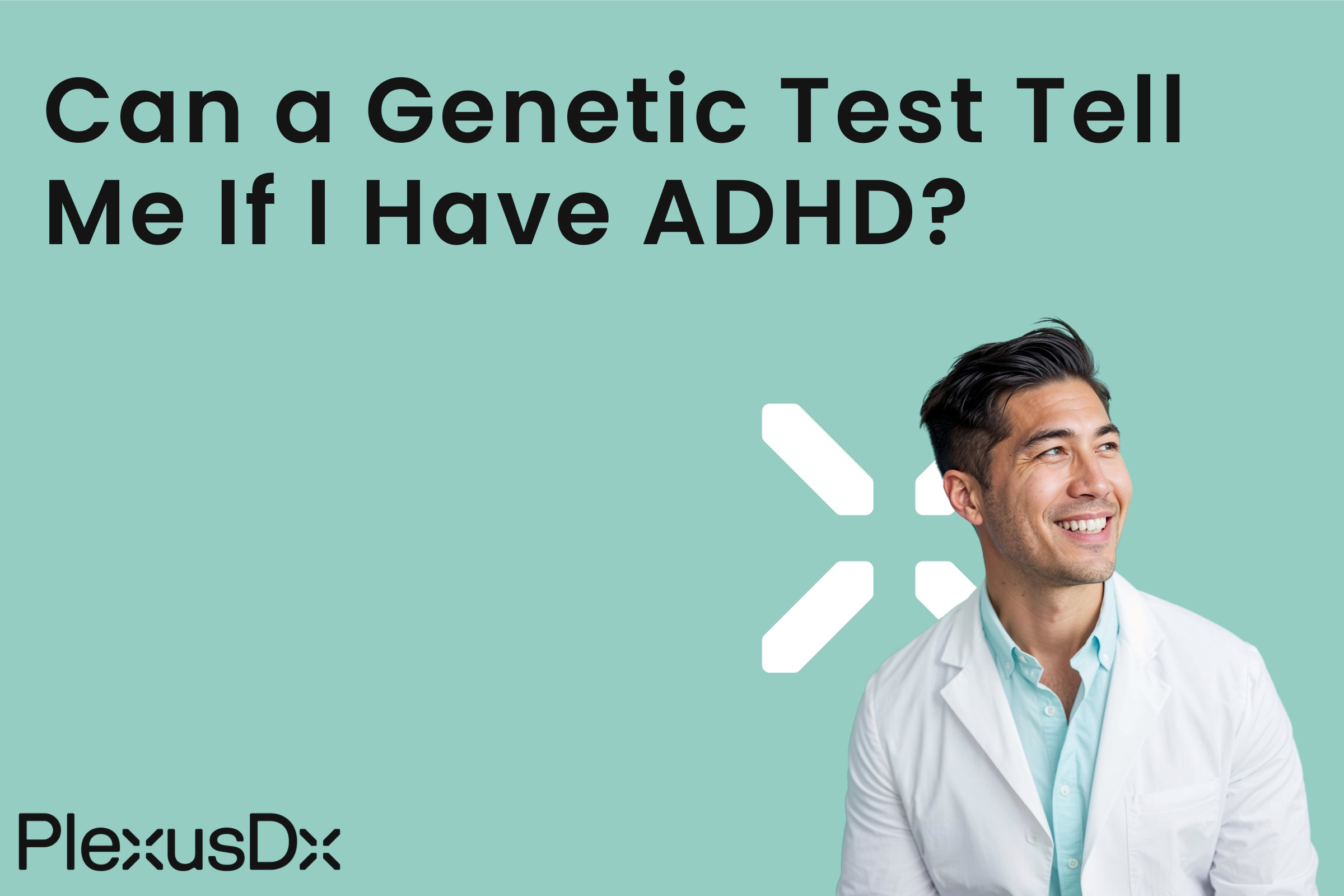Can genetic testing be used to diagnose ADHD?
Could your attention difficulties, impulsive actions, or excessive movement be genetic in origin? Genetic testing for ADHD diagnosis is becoming more important due to rising public interest in this medical issue. Scientific advancements in genetic testing have improved our knowledge about various health conditions but the genetic links to ADHD continue to be highly complex and difficult to understand. In this blog post we explore genetic testing capabilities specifically for ADHD and discuss current research findings while presenting ways for you to gain a deeper understanding of your health.
Understanding ADHD and Its Genetic Links
ADHD functions as a neurodevelopmental disorder that shows up in both children and adults through symptoms of inattention together with hyperactivity and impulsivity. Scientists have identified genetics as a significant element in ADHD but they still lack full comprehension of its precise origin. Studies indicate ADHD exhibits genetic transmission patterns with heritability ranging from 60% to 90%. Genetic links between family members make it more probable for someone to develop ADHD if another relative has the condition.
ADHD results from the interaction of multiple genes rather than a single specific gene. ADHD results from the combined small effects of numerous genes. Genetic testing for ADHD fails to provide definite results because of the disorder's complex genetic background. The inconclusive nature of findings prevents genetic markers from functioning as standalone tools to diagnose ADHD.
Genetic testing plays a minor role in ADHD diagnosis due to its current limitations.
Healthcare professionals avoid using genetic testing as their main approach to diagnose ADHD. The primary diagnostic tools for ADHD in healthcare settings are behavioral evaluations and clinical assessments. ADHD diagnosis through behavioral assessments requires the use of questionnaires and interviews along with direct behavioral observations across multiple settings. Genetic tests identify potential risk factors for certain conditions yet they remain insufficient for conducting the comprehensive evaluations needed to diagnose ADHD.
Even though it has limitations genetic testing provides essential knowledge. Genetic testing reveals markers which indicate higher ADHD risk in people who have relatives with ADHD. This information streamlines your health understanding so you can make informed lifestyle and treatment decisions.
Actionable Advice for Assessing Potential ADHD
Follow these steps if you suspect ADHD symptoms in you or someone you care about.
- Begin by scheduling a consultation with a certified healthcare professional. Healthcare professionals who work with you can conduct thorough evaluations during comprehensive symptom discussions.
- Careful daily records of your experiences and challenges will enable your healthcare provider to gain important insights. Document both when your symptoms appear and what triggers them during those times.
- Genetic testing cannot determine an ADHD diagnosis so it's important to discuss this with your healthcare provider. Your healthcare provider will discuss how genetic testing results relate to your health situation and its informational benefits.
- Educate Yourself: Understanding ADHD can empower you. Explore ADHD through educational books and participate in workshops and support groups to learn effective coping techniques.
- Engaging in healthy habits through regular exercise along with nutritional eating and mindfulness techniques helps control symptoms of ADHD.
Conclusion
Genetic testing identifies possible ADHD susceptibility but requires additional diagnostic methods for confirmation. The complex relationship between genetics and ADHD demands professional healthcare evaluation for accurate diagnosis. When you suspect ADHD you should talk to a healthcare provider start recording symptoms and evaluate possibilities for genetic testing. Individuals interested in improving their health awareness can discover the Precision Health & Wellness tests from PlexusDx which they can order through PlexusDx.com and purchase at both Amazon and Walmart. These tests deliver critical details about your genetic makeup and health condition enabling you to improve your decision-making abilities. The uniqueness of your health pathway becomes evident when you acknowledge its distinct characteristics which initiates your path to empowerment.
Where to Buy PlexusDx Genetic Tests
Ready to take control of your health with precision genetic insights? You can purchase the PlexusDx Cognition and Brain Health Genetic Test from these trusted retailers:
- 👉 PlexusDx – Order directly from our official website.
- 👉 Amazon – Convenient shopping with fast shipping.
- 👉 Walmart – Buy online from a trusted retailer.
Get your personalized DNA insights today and start optimizing your health! 🚀

Share:
Which Genes are Analyzed in A Genetic Test for Diabetes Risk?
How To Determine Genetic Age?